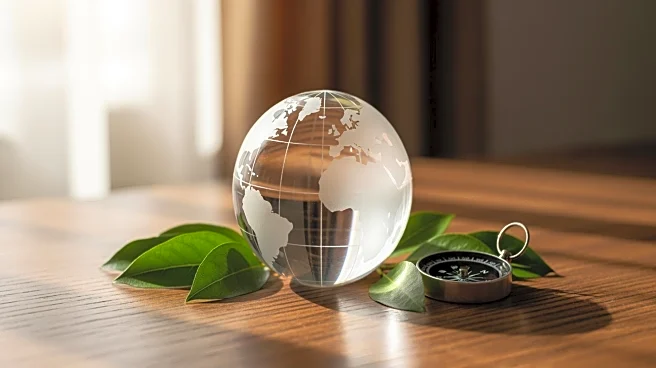What's Happening?
The European Union has managed to secure concessions in the COP30 climate deal, despite facing geopolitical challenges and internal disagreements. The EU aimed to push for greater global efforts to combat climate change but had to settle for a weaker
agreement. The final deal includes affirmations on transitioning away from fossil fuels and discussions on achieving these goals over the next year. Developed countries, including the EU, won changes to a proposal to triple financing for poorer countries to prepare for climate disasters, although the funds will be provided later than desired and from sources beyond rich countries' budgets.
Why It's Important?
The COP30 climate deal is significant as it reflects the ongoing global efforts to address climate change. The EU's ability to secure concessions highlights its role as a key player in international climate negotiations. The deal's focus on transitioning away from fossil fuels and financing for climate disaster preparedness is crucial for global environmental sustainability. However, the weaker agreement underscores the challenges of achieving consensus among diverse geopolitical interests. The EU's actions demonstrate the complexities of balancing environmental goals with political realities.
What's Next?
The EU and other developed countries will continue to work on implementing the COP30 deal and advancing discussions on fossil fuel transition. The next year will involve negotiations on how to achieve the agreed-upon goals, with the EU likely to push for more ambitious climate actions. The deal's implementation will require collaboration among international stakeholders and may face resistance from countries with differing priorities. The EU's leadership in climate policy will be tested as it navigates these challenges.















